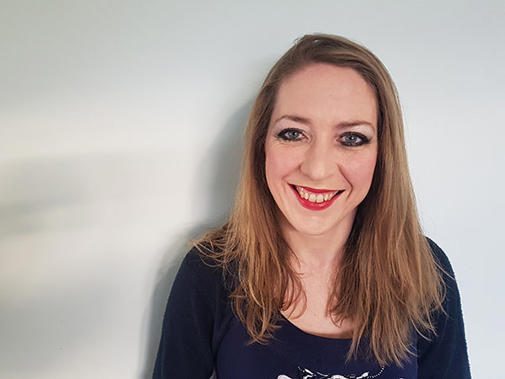‘Patients and colleagues don’t expect doctors to be sick, you’re supposed to be well, you’re supposed to be the one that’s able to make things better.’
Emergency medicine specialty doctor, BMA equality advisory committee member and MS patient Clodagh Corrigan (pictured above) knows only too well the prejudice and discrimination disabled doctors and other healthcare professionals face in the NHS.
It was almost a decade ago when, as a recently qualified doctor and new mum, Dr Corrigan had returned to work following a course of treatment to begin her latest rotation, where she was more or less told by her new line manager to quit her career.
‘I was told that “you can’t be a doctor, a mummy and a patient” and that I should “reconsider” my career,’ explains Dr Corrigan.
‘I know I can bring a lot to the table [as a doctor], and just because my legs don’t work, doesn’t mean I can’t still do good for my patients and make a difference to somebody.’
Sadly, Dr Corrigan’s experiences as a doctor with a debilitating medical condition, which range from the unempathetic to the outright ignorant, are likely to be familiar to many disabled staff working in the health service.
Findings from the BMA’s 2020 Disability in the medical profession study reveal that, of the disabled doctors and medical students responding to the survey, 23 per cent say they do not share their status with their employers or schools.
Seventy-seven per cent meanwhile say they fear unfavourable treatment were they to decide to be open about their disabilities or health conditions.
While its provisions do not apply to all parts of the UK, the Equality Act 2010 states that disclosing a disability or medical condition to an employer is at the discretion of the individual.
Despite offering a degree of legal protection, many disabled medical professionals feel compelled to keep silent meaning many are left feeling increasingly isolated and invisible in the workplace.
November sees the UK celebrate Disability History Month, with the BMA using the occasion to publish new guidance aimed at supporting disabled doctors and offering practical advice to employers, with the view of promoting more inclusive working environments in the NHS.
The guidance covers issues ranging from a manager’s responsibilities when a member of staff discloses a disability or health condition, to advising on how to create an environment in the workplace that normalises regular discussions about staff support needs.
Dr Corrigan says she hopes the guidance, along with the BMA’s existing commitment to widening support and ensuring workplace disability champions are mandated across all parts of the health service, will hopefully serve to broaden the conversation and raise awareness of the realities faced by disabled staff.
‘There certainly needs to be much more awareness that disabled medical students exist, disabled doctors exist, and they have a role,’ she says.
‘[By being more visible] we let patients know it is OK if your doctor, physio or nurse has a disability.’
Idura Hisham is a specialty trainee 1 in psychiatry who since childhood has dealt with a number of health conditions including Ehlers Danlos syndrome, Tourette’s syndrome, ADHD, OCD and generalised anxiety disorder.
Even before reaching medical school, Dr Hisham had to contend with multiple people’s attempts to discourage her from becoming a doctor on the grounds her conditions would make her unable to take on patient-facing roles.
‘I think in terms of my disabilities, and my experience navigating these it’s been really tough. Deciding who you reveal your disability to is difficult because you never know who you can trust and you can’t,’ says Dr Hisham.
‘I think a part of me believes that if they [managers and colleagues] can see that someone with ADHD and all these other disabilities can still do really well and still be competent at work, then maybe it will reduce the stigma of being a disabled medical professional.
‘Unfortunately, revealing your disability can sometimes end up being weaponised against you.’
While Dr Hisham found studying for her medical qualification challenging, she says her university was able to help her by providing reasonable adjustments and accommodations.
Upon entering the workplace, however, Dr Hisham had found it much harder to obtain such adjustments for her continuing studies that are mandatory for her career progression.
She says that, among the changes she wished to see was an increased visibility and access to learning disability advisers and, where possible, clinical supervisors with lived experience of disability or a long-term health condition.
Dr Hisham also believes there must be greater opportunities for doctors with disabilities to provide feedback to their employers about their experiences in the workplace.
‘When you enter the workplace all the support you receive in medical school in terms of adjusting to teaching or accommodations for teaching is gone,’ Dr Hisham says.
‘Learning disability advisers can be particularly helpful because while occupational health can help with work adjustments, they can’t really help with adjustments to learning.’

